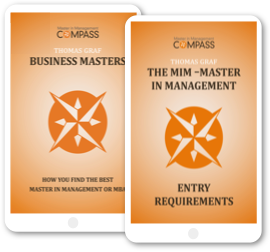- › Master in Management | Part 1 | Mansi Singh | 2022-2024
- › Master in Management | Part 1 | Henning | 2019 - 2021
- › Master in Management | Part 2 | Henning | 2019 - 2021
- › Master in Management | Part 3 | Henning | 2019 - 2021
- › Master in Management | Part 1 | Benedict | 2015 - 2017
- › Master in Management | Part 2 | Benedict | 2015 - 2017
- › Master in Management | Part 3 | Benedict | 2015 - 2017
With this blog I want to give you some insights into the Master in Management (MiM) program at the European School of Management and Technology (ESMT) from a current student’s perspective in order to help you finding a suitable Masters.
Time flies… I was a bit surprised when I saw that my last blog entry was uploaded about 10 months ago. After counting the months with my fingers and realizing that actually almost half of my time at ESMT Berlin is over, I decided to give you a short heads-up on my experiences during my Master in Management at ESMT so far.
What are actually the components of my past 10 months? Two study modules, 13 truly exciting and insightful courses, lots of group work sessions, many Spanish language lessons…. I could continue this list for a while. To make it easier, let me summarize the time in three core points: hands-on knowledge building, personal development and fun.
Hands-on knowledge building
Early on during the past ten months, I have heard one sentence from one of our professors and I fully agree with him –"We at ESMT always try to put theory into practice". Every single course during my business management core modules – from Financial Accounting to Sustainability Analysis – motivated us students to apply the knowledge acquired during the lectures to group assignments, small ad-hoc presentations or workshops and thereby "put theory into practice". This approach towards teaching motivated me not only to really take a deep dive into theory, but also to think about ways to deliver and communicate my theory-based findings in an appropriate way. Crunching numbers and applying theoretical concepts is only one part of the learning experience, the other part is to make it easy for the audience of a group presentation, or the reader of an assignment, to grasp conclusions drawn from your analysis.
Personal development
Over 60% of our graded coursework is group-based – groups change over modules and over different courses. This means that you need to adapt to new teammates quickly, find team norms and start working on assignments. This might sound easier as it actually is. I am sure that every classmate had this one moment over the past ten months, where he or she wanted to change groups, but nobody did so. Every conflict got resolved and teams found ways to work fruitfully together in order to deliver impressive results. I think I speak on behalf of my entire class when I say that we all made a huge improvement in interpersonal skills and developed ourselves into better team players.
Fun
I think I do not need to tell you much about this topic: I mean, it’s Berlin where ESMT is located, and you have a class of highly motivated young students who are curious, both on- and off-campus.
I almost forgot one important point. While I am writing this blog entry, my entire class is busy putting theory into practice in an even more realistic environment: in internships. We all are currently interning for up to six months in companies across all geographies and industries. I am really excited to meet the entire class in October after everybody finishes his or her internship, and to hear of the experiences had.
Finally, my next blog post won't take 10 more months to go live. Now that I know that time flies I can keep an eye on my calendar to inform you this fall about my experiences in my internships, the specialization tracks in our third study module and the first step towards writing our master thesis.
Cheers
Benedict
Cheers Benedict
Your Contact at ESMT Berlin
Stephanie Kluth is Head of Admissions at the ESMT Berlin. She would be happy to answer your questions, for example on ESMT's Master program or what it's like studying at ESMT. Stephanie Kluth strongly encourages you to request more information.
Please use the REQUEST INFO Button to contact her.
Request Info








